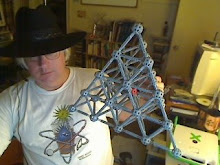We gathered for BBQ with other Friends, three married couples enjoying a warm bug-free evening in the backyard. Larry and Susan went to Hollywood Video to make a selection, and came back with this R-for-violent tale of a family torn asunder by the Cuban Revolution of 1959 (about 8 months after my birth in Chicago).
Instead of the mellow "chick magnet Che" of Motorcycle Diaries, this time it's "psycho Che" already with many friends murdered. But neither he nor Fidel get much focus in this flick. The main character is a dinner jacketed Cuban on the Meyer Lansky side of the fence.
Lansky (played by Dustin Hoffman) gives our hero the creeps mind you, but as the owner of a successful music club, he has little choice but to rub elbows with organized crime which, upon being evicted from Havana, headed straight for Las Vegas (the movie alludes to this winged migration).
The pretty girl is like a Marilyn figure, wanting to use her head like a man's, to play on the world historical stage, even if only around a rotund Russian ambassador for starters. She wants to be someone in this life, not just someone's lover or wife. I respected her courage.
But the male principal, a man of principles, was not about to share her with a revolution that, from his perspective, had utterly destroyed his own family, leaving only heartbreak and remorse in its wake. Cuba as a "saxophone free zone" really sucked (and yes, so did the Belgian Congo). New York held more promise (that statue really helps).
But then, most Cubans didn't have "New York" as an option. The film isn't really focused on the lower decks of this particular Titanic.
Dawn's O2 went out half way through. She switched tanks but forgot to dial a level, and so breathed unassisted for an hour, leading to some chest pain towards the end. She enjoyed the film but, as with V for Vendetta, was put off by the violence level.
Maybe Bill Murry is what keeps this film watchable. He breezes through as the writer-comedian, perhaps emblematic of the screenwriter's viewpoint. He pokes fun at all players, out of familiarity more than fear, like some other-worldly being. He typifies high artistry, the kind of thing these high rolling bosses really traffic in anyway (all of them seek quality).
There's a lot of theater in politics, a lot of politics in theater. This film takes a raw reality and transmutes it into something worth watching, even if oft times unpleasant to contemplate.
skip to main |
skip to sidebar

On the road with Global Data
Didact
About Me
Connections
Blog Archive
-
▼
2006
(170)
-
▼
September
(16)
- My Blue Dino
- More About Santa Claus
- Yar!
- Focal Points
- More Compositions
- A Quick Account
- Sculpture (with found objects)
- Edgefield: Home of the Black Rabbit
- Chatting With Mom
- Merging Traffic Patterns
- More on Project Earthala
- Belmont Street Fair
- Razz
- Investments
- The Lost City (movie review)
- Back to School
-
▼
September
(16)